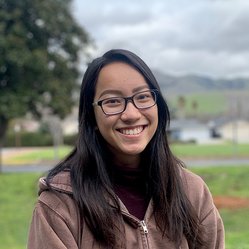
Undue influence: Power, authority and personal beliefs
Undue influence: Power, authority and personal beliefs
By Angelie Hoang | May | June 2020
Power is defined as, “the capacity or ability to direct or influence the behavior of others or the course of events.” When we think about the people who have the most power over us, our parents are usually the first to come to mind. They not only raise us and inform us about the standards of society, but they also build the foundations of our moral, political, and religious beliefs. Although parents hold this significant influence in our lives, we often overlook a more powerful authority: teachers.
Teachers are tasked with the responsibility of educating us and preparing us for the world. In the early stages of our education, when our identities are most malleable and when our teachers are at the peak of their authority, we have no other choice but to believe that they are instructing us with the objective truth. Almost all teachers recognize their significance in the lives of their students and strive to make meaningful contributions, but a handful of others see this position of power as an opportunity to leave their own, personal impression on future generations.
During my junior year of high school, my math teacher decided to use her influence as a platform to share her personal beliefs. After the AP exam season, she announced that the remaining couple weeks of class time would be dedicated to presentation projects on philosophy and logic. Her reasoning for this project made sense, as she explained that many STEM majors would have to take upper-division courses in philosophy and logic.
As a class, we were given resources to reference, which included “The Will to Believe” by William James and a video lecture called “Faith and Reason” by Megan Sullivan from the Lumen Christi Institute at the University of Notre Dame. Both of these sources were insightful and focused mostly on the logic aspect of this project, making us question why we choose to believe things without proper, tangible evidence. I was initially optimistic about the purpose of this project, but when the presentations started, I, along with the majority of my classmates, felt as if our teacher was just using this opportunity to feed us propaganda regarding Christianity and her personal, political beliefs.
We were instructed to have classroom debates about current political and religious issues. At the time, the topic of abortion was prominent, and our teacher encouraged us to take advantage of the controversy and turn it into a focus for logical discussion. I was shocked when she essentially started preaching her pro-life perspective in the middle of a group’s presentation. She continued to insert and justify her personal beliefs throughout the rest of the presentations, even though they were supposed to be student-driven conversations. One of the most memorable discussions was about Pascal’s wager, an argument highlighting the pros and cons of believing or disbelieving in God, and, long story short, my teacher heavily guided the conversation, which led to the conclusion being drawn that following a religion and believing in God comes with more benefits compared to the suggested uselessness of atheism.
The question of why we choose to believe in certain things becomes very relevant when talking about the seemingly unquestionable authority and teachings of our educators. The fact of the matter is that teachers are put in a position that essentially forces students to listen to them, and this can be extremely dangerous. As someone who is hoping to have a future career in education, specifically as a math teacher, cases such as what happened in my calculus class truly opened my eyes to the power that educators have and show that it’s important for all teachers to remember their roles in a student’s education. It truly concerns me that my teacher thought it was appropriate and within her boundaries to insert her ideas into her students’ presentations because teachers are expected to be unbiased and objective about their teachings.
It’s true that there is a wide range of diversity on most school campuses and therefore a wide range of personal beliefs. With this comes controversy over many different topics, and although it’s important to have discussions about real-world issues, teachers need to be very cautious when approaching these conversations to avoid imposing their personal beliefs on their students or being ignorant of other perspectives. It’s often very easy to get carried away when one is passionate about a certain topic, but when it comes to politics, religion, and other delicate subjects, teachers need to keep their point of view outside of the classroom for the sake of transparency and the overall quality of a person’s education.
The point of going to school isn’t to be fed propaganda or be discouraged by others due to what we believe in. We come to school to learn and receive a proper education. Teachers and students alike can’t afford to lose sight of that purpose.
Angelie Hoang is a student at Milpitas High School in the Milpitas Unified School District
ADVERTISEMENT

